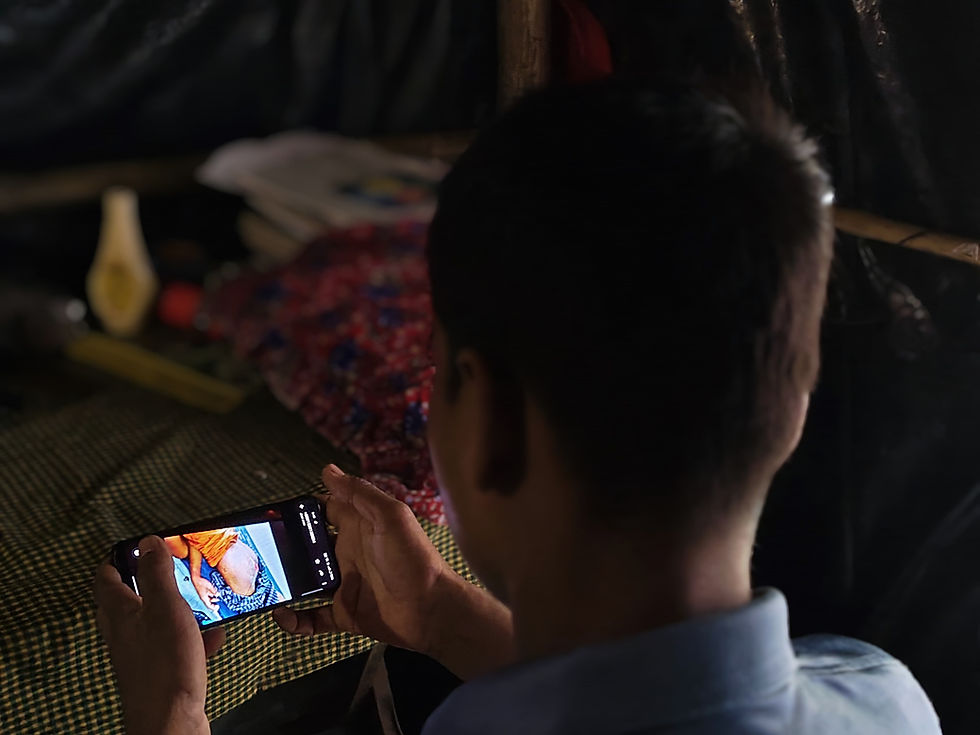The life of a Rohingya widow in the world's largest refugee camp
- Ahtaram Shin
- Nov 18, 2025
- 2 min read
Words and photos by Ayub Khan Dkl

Sajeda Begum, 59, is an elderly Rohingya widow from Maungdaw Township in Arakan State. She has lived in the Bangladesh refugee camps for eight years, yet the world rarely sees what life looks like for women like her, alone and ageing in limbo.
Her experience of displacement began long before 2017. In 1978, when she was just ten years old, she fled to Bangladesh with her parents and stayed for seven months in the Palongkhali area of Ukhia. Families received limited assistance the, rice and wheat rations amounting to just three and a half days of food each week, before repatriation was arranged by the governments of Bangladesh and Myanmar.

Nearly forty years later, she had to flee again. After arriving in the camp in 2017, she lived with her husband until his death on 20 October 2023. That loss shifted her world from hopefulness to despair.
“My husband used to help me collect water, carry rations, and manage our daily needs,” Sajeda recalls.
Now she faces everything alone. For an elderly widow, the hardest part of survival is the absence of support.
“There is no space for widows, and no one to listen to us,” she says.

Simple tasks like walking to a distant toilet at night, visiting the clinic, collecting water, or carrying food distributions have become exhausting barriers. Aside from the monthly ration, she receives no other assistance. No winter clothes. No blankets. No sanitary supplies. No income-generating opportunities. No psychosocial support. No women’s network for safety or companionship.
Her daily meals usually consist of rice, eggs, and lentils provided by the World Food Programme, but even collecting these rations is difficult due to her age and isolation.

Sajeda feels somewhat safe inside her shelter, but storms terrify her, and she avoids walking outside at night. She says she has not personally faced harassment, though she knows many widows who have.
“Elderly widows should receive transport to collect rations,” she suggested.

Sajeda has no relatives in the camp. She notes that no NGO provides targeted assistance for widows, aside from fresh food supplied by WFP partners.
Energy remains a constant struggle.
“Solar panels and batteries are not enough for a widow like me,” she explains.
Her message to the world is simple:
“I want to return home with safety and dignity. Everyone has a home to call their own. Why don’t we?”

Sajeda believes widows in the camps need a dedicated support system. Her life, lived quietly on the margins, makes one thing painfully clear: without intentional assistance, elderly Rohingya women continue to fall through every gap.
Edited by Ahtaram Shin






